Favianna Rodriguez
The University of Arizona College of Humanities
Department of Public & Applied Humanities
Dorrance Dean’s Award for Scholar/Specialist-in-Residence
The University of Arizona College of Humanities
Department of Public & Applied Humanities
Dorrance Dean’s Award for Scholar/Specialist-in-Residence
Favianna Rodriguez is a celebrated artist and cultural strategist whose work centers on themes of racial and gender justice, migrant rights, climate change, and pleasure activism. During Rodriguez’s two-week residency at the University of Arizona in October 2023, she engaged students, faculty, and the broader Tucson community in understanding how core values of the humanities — such as fearless inquiry, inclusive play, and compassionate adaptability — can help us explore the ecological realities of the borderlands through the lens of diverse plant, animal, and human communities. Ultimately, Rodriguez encouraged us to tackle urgent questions, uplift creative expression, and engage in storytelling to transform our world in these challenging times.
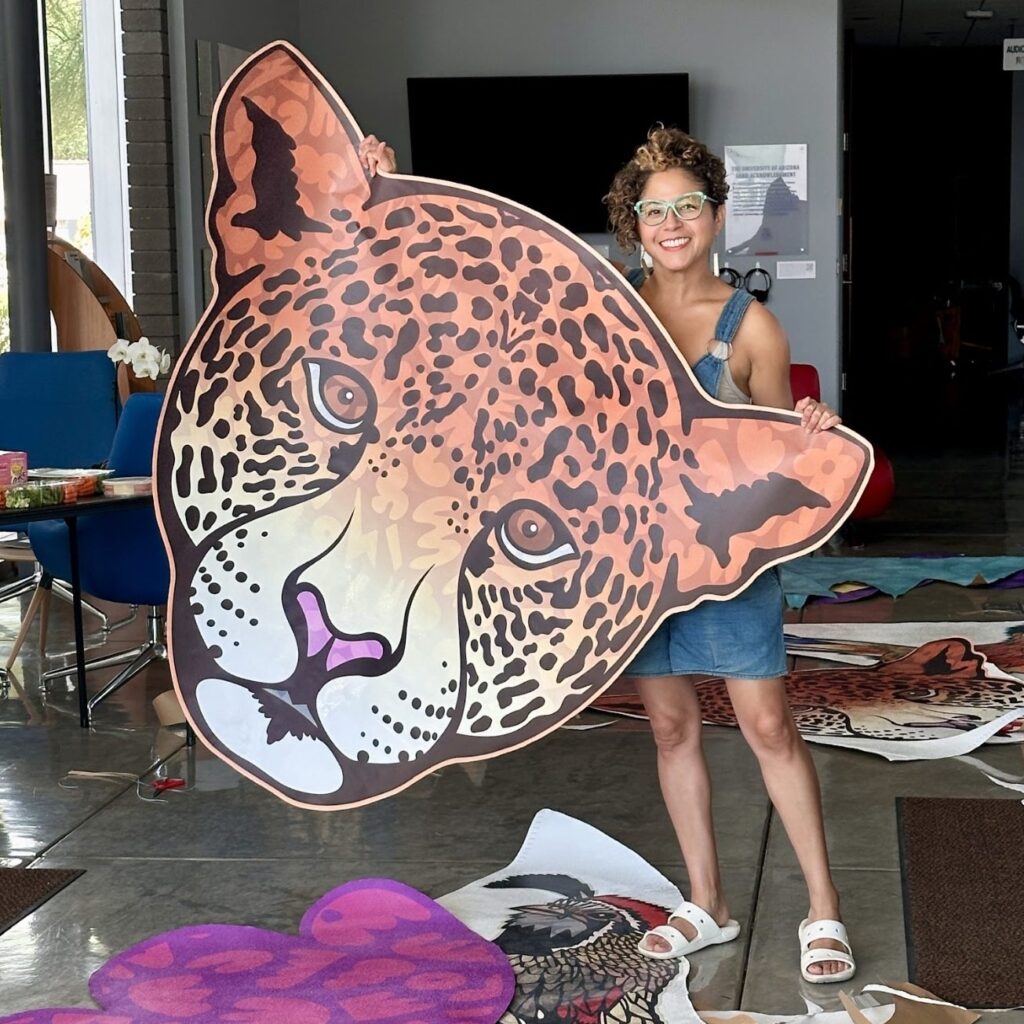
Favianna Rodriguez holds up a component of the artwork during installation — full installation photographs coming soon.
Favianna Rodriguez, 2023
digital illustrations printed on Alumigraphics
University of Arizona Poetry Center
A site-specific installation, Desert Symphony responds to the natural and cultural life of Tucson, depicting beloved flora and fauna of our Sonoran ecosystem. Drawing on Rodriguez’s long history of art and activism, viewers are encouraged to reflect on the urgency to address climate change, its disproportionate impacts on communities of color, and the power of culture in catalyzing social action. By highlighting Indigenous relations with the non-human world, Rodriguez prompts us to consider how we might look to both past and future possibilities in order to build sustainable ecologies that thrive without the constraint of man-made borders.
The installation is located in the breezeway of the Poetry Center, and may be viewed any time. It is expected to remain on view through May 2024.
Curated by: Harris Kornstein and Jacqueline Barrios, Assistant Professors of Public & Applied Humanities
More information and photographs coming soon!
All events have already taken place.
Tuesday, October 24, 2023
6pm: art unveiling + toast / 7pm: lecture + reception
Poetry Center (map)
Tucson Humanities Festival lecture
Catalyzing cultural power and creative expression is vital for building more sustainable futures. Interdisciplinary artist, cultural strategist, and activist Favianna Rodriguez will discuss the themes of justice and joy in her work, which leverages the power of style and storytelling to challenge dominant myths.
She will also unveil her new on-campus installation Desert Symphony, which reflects on the intersections of climate change and migration in Tucson’s unique ecological and cultural home in the borderlands.
Join us at 6pm for the unveiling of Desert Symphony. A reception will follow the lecture.
No registration required.
This event will also be livestreamed via the Tucson Humanities Festival website.
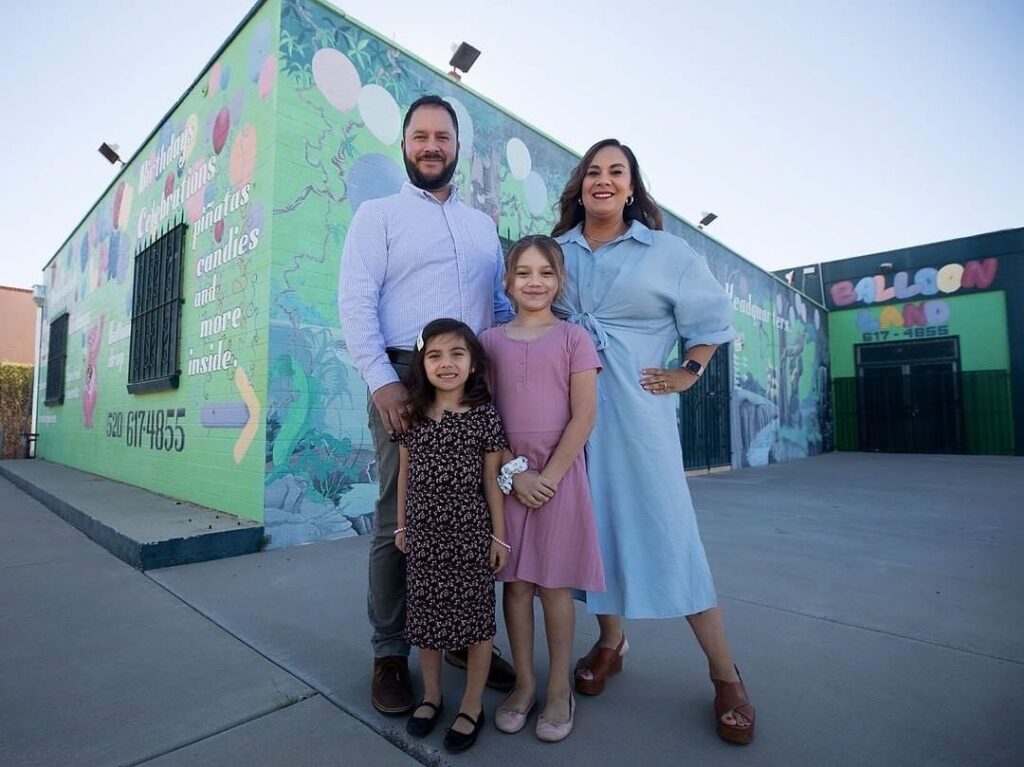
Saturday, October 21, 2023
9-11am
Luna y Sol Cafe (map)
Favianna Rodriguez and Selina Barajas (co-owner of Luna y Sol Cafe) will host a conversation focusing on building community through arts, culture, and institution building. As Latina entrepreneurs committed to empowerment and social justice, they will share stories of creative projects that celebrate the lasting legacies of neighborhoods while envisioning new paths for the future.
Open to the public, registration recommended (but not required). South Tucson small business owners, community leaders, and artists are especially encouraged to attend.
Coffee and pan dulce will be served.
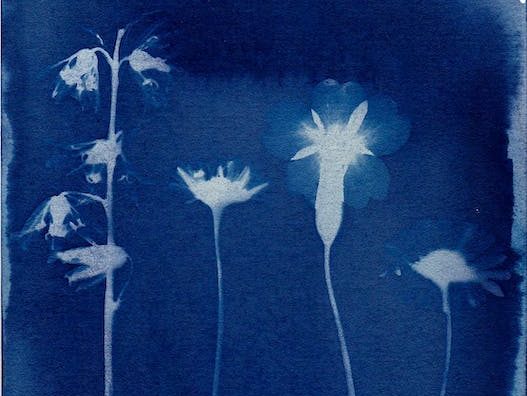
Sunday, October 22, 2023
11am-1pm
Tumamoc Hill Boathouse (map)
Join Favianna Rodriguez for a guided nature walk around Tumamoc Hill to learn more about Tucson’s unique desert ecologies in the contexts of migration and climate change. Participants will gather materials to create cyanotype prints, harnessing the power of the sun to create works of art that reflect on their experiences in the desert borderlands.
Open to the public, registration required. This is a family-friendly event (children are welcome with adults).
Please note: The nature walk is expected to last approximately one hour, and will consist of a beginner-level hike. If you have questions about accessibility, please contact the organizers.
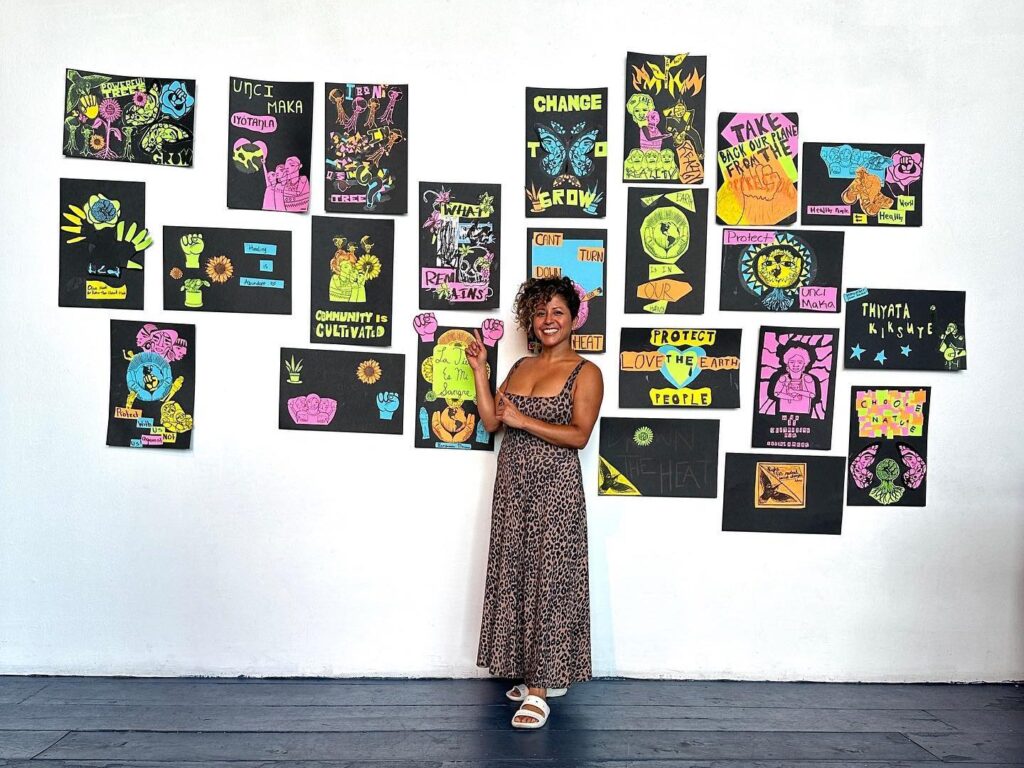
Thursday, October 26, 2023
2-4pm
ENR2 room N604 (rooftop) (map)
In this hands-on workshop, Favianna Rodriguez and local activists will discuss the environmental justice movement, and how to strategically utilize creativity and culture to re-shape narratives in the age of climate crisis. Participants will learn how to develop verbal and visual messaging to make a difference in local projects in Southern Arizona by creating and critiquing their own social justice posters.
No prior artistic experience necessary!
Open to the public, registration required.
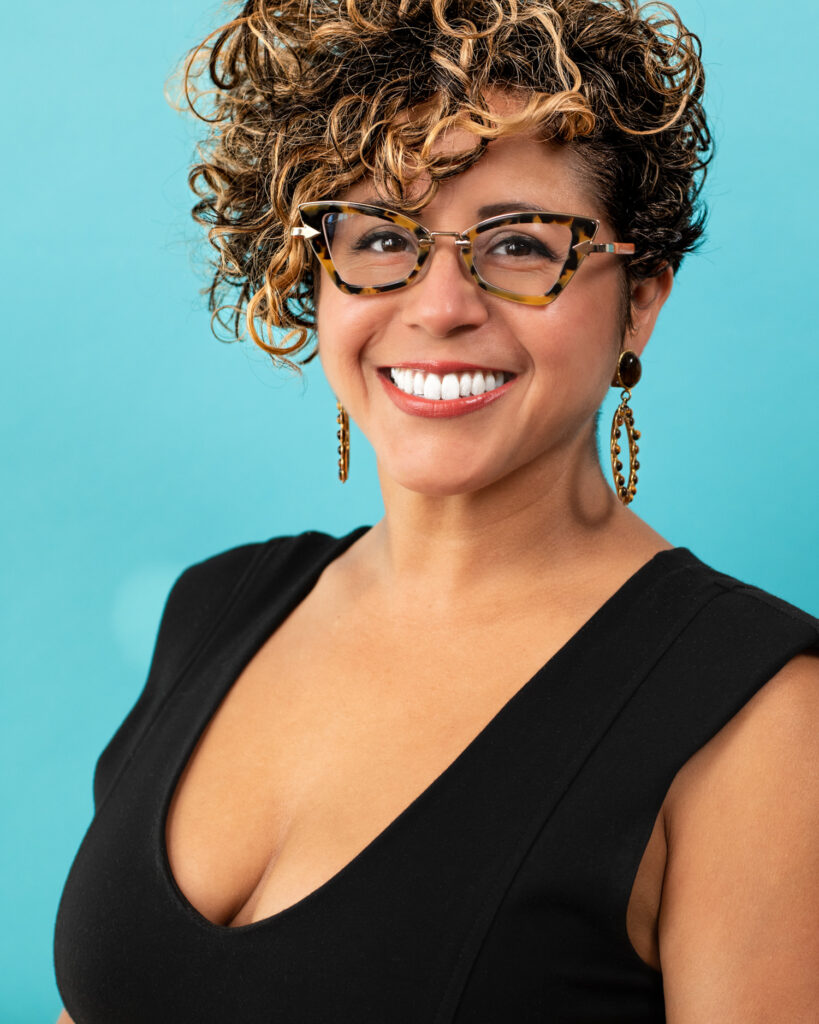
Favianna Rodriguez is an interdisciplinary artist, cultural strategist, and entrepreneur based in Oakland, California. Her work has been exhibited internationally at museums like the Los Angeles County Museum of Art, Smithsonian, and Palacio de Bellas Artes in Mexico City, and she has inspired audiences around the world through poignant speeches at venues like the United Nations Climate Summit, Sundance Film Festival, and Google. As a cultural strategist and entrepreneur, Rodriguez has served as President and co-founder of The Center for Cultural Power and recently helped launch the Constellations Culture Change Fund to support BIPOC artists and organizations; she has also led creative partnerships with companies like Ben & Jerry’s, Spotify, and Old Navy. A recipient of many awards, Rodriguez has received the Robert Rauschenberg Artist as Activist Fellowship, an Atlantic Fellowship for Racial Equity, and the SOROS Equality Fellowship.
Rodriguez’s residency is organized by Assistant Professors of Public & Applied Humanities Harris Kornstein and Jacqueline Barrios, with the support of Jonathan Jae-an Crisman.
The Dorrance Dean’s Award for Scholar/Specialist-in-Residence is an initiative of the College of Humanities Fearless Inquiries Project, a long-term, flagship effort specifically aimed at catalyzing a national culture that prizes open discussion, independent judgement and the questioning of stubborn assumptions. The Award supports COH units in their engagement with prominent humanities scholars with expertise in areas like Freedom of Expression, Humanities and High Tech, Entrepreneurial Humanities, among others.
The Department of Public & Applied Humanities works to translate the personal enrichment of humanities study into public enrichment and the direct and tangible improvement of the human condition. Through research-driven, collaborative, and publicly facing projects built to explore and enhance life in the community and beyond, our students and scholars convert understanding into action for the measurable betterment of society. The department is fundamentally experimental, entrepreneurial, and transdisciplinary, and focuses on public and private opportunities that straddle rather than fall between purviews, or are confined by them.
For questions or more information, please contact Harris Kornstein.
With questions about access or to request any disability-related accommodations for this event series—such as ASL interpreting, closed-captioning, wheelchair access, or electronic text, etc.—please contact Harris Kornstein.
Please note: The Desert Symphony: Mobilizing Creativity & Stories For Social Change lecture will be held in person as well as livestreamed (the livestream will include auto-generated captions, and a video with updated captions will be posted after the event.)
We respectfully acknowledge the University of Arizona is on the land and territories of Indigenous peoples. Today, Arizona is home to 22 federally recognized tribes, with Tucson being home to the O’odham and the Yaqui. Committed to diversity and inclusion, the University strives to build sustainable relationships with sovereign Native Nations and Indigenous communities through education offerings, partnerships, and community service.
